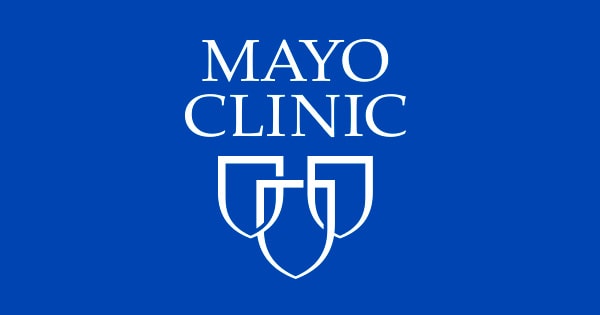D
Deleted member 65752
Deleted 27th May 2024 Coming back 3rd July 2025
- Joined
- Mar 8, 2024
- Posts
- 2,762
- Reputation
- 4,200
If you're one of the many Fatcels interested in weight loss assistance but are turned off by their injectable delivery, experts say there are a handful of other options you can ask your doctor about. Read on to find out which five weight loss drugs are delivered needle-free
1 Semaglutide (Rybelsus)

If you're looking for a GLP-1 drug you can take without the sting of a needle, Rybelsus tablets offer an orally administered alternative to injectable weight loss medications. In fact, they use the same active ingredient as their injectable counterparts: Semaglutide.
However, experts say that access to Rybelsus is limited for the general population. "Although Semaglutide is commercially available, this medication is only FDA-approved for those with [Type 2] diabetes," explains Michelle Pearlman, MD, a board-certified gastroenterologist and obesity medicine specialist.
She also says that with the help of their doctors, patients should carefully weigh the pros and cons of taking these medications, which are known to cause a range of side effects.
"These drugs have revolutionized my practice, offering a new paradigm for those struggling with weight loss," she says of GLP-1 agonists. "However, it's crucial to remember that they are tools, not miracles, requiring supervision for their effective use."
2 Orlistat (Xenical or Alli)

A. cutting-edge class of weight loss drugs works by targeting your appetite regulation—"that is, they make you feel fuller for longer, decrease your appetite, etc.," explains the Cleveland Clinic. Older weight loss drugs such as Orlistat (Xenical or Alli) work a bit differently—they lower the amount of fat you absorb from your food.
As with all weight loss medications, you'll also need to alter your diet to see results while taking these older weight loss drugs. The Cleveland Clinic says that while on Orlistat, you should follow a reduced-calorie diet in which no more than 30 percent of your total calories come from fat.
"Addressing weight loss is not just about shedding pounds but promoting overall health and longevity," says Pearlman. "It's about making informed choices under professional guidance, emphasizing that weight loss drug aids should complement, not replace, a healthy lifestyle.
3 Bupropion and Naltrexone (Contrave)

Another orally administered weight loss strategy is actually the combination of two drugs, Bupropion and Naltrexone. Though Bupropion is most commonly used as an antidepressant and Naltrexone is often used to treat opioid addiction, they can help decrease hunger and reduce cravings when taken together.
According to data provided by Contrave, a branded combination of these two therapies, between 36 and 57 percent of patients taking the time-release capsules achieved a clinically meaningful treatment response to the drug, defined as losing five percent of their body weight loss after one year of treatment. By comparison, 17 to 43 percent of people taking a placebo while on a reduced-calorie diet achieved clinically relevant results..
4 Phentermine-topiramate (Qsymia)

Phentermine-topiramate is another drug combination used for weight loss purposes. Phentermine is a stimulant that can lessen appetite, and topiramate is primarily used as an anti-seizure medication. Taken together, the combination decreases hunger and increases feelings of satiety after eating.
Like all weight loss medications, it comes with benefits and risks. "Phentermine is one of the most prescribed weight-loss medicines," says Meera Shah, MD, via the Mayo Clinic. "But it isn't a good choice for people with heart disease, high blood pressure, an overactive thyroid gland or glaucoma. It also isn't for people who are pregnant, may become pregnant or are breastfeeding."

 my.clevelandclinic.org
my.clevelandclinic.org

 my.clevelandclinic.org
my.clevelandclinic.org

 www.mayoclinic.org
www.mayoclinic.org
1 Semaglutide (Rybelsus)

If you're looking for a GLP-1 drug you can take without the sting of a needle, Rybelsus tablets offer an orally administered alternative to injectable weight loss medications. In fact, they use the same active ingredient as their injectable counterparts: Semaglutide.
However, experts say that access to Rybelsus is limited for the general population. "Although Semaglutide is commercially available, this medication is only FDA-approved for those with [Type 2] diabetes," explains Michelle Pearlman, MD, a board-certified gastroenterologist and obesity medicine specialist.
She also says that with the help of their doctors, patients should carefully weigh the pros and cons of taking these medications, which are known to cause a range of side effects.
"These drugs have revolutionized my practice, offering a new paradigm for those struggling with weight loss," she says of GLP-1 agonists. "However, it's crucial to remember that they are tools, not miracles, requiring supervision for their effective use."
2 Orlistat (Xenical or Alli)

A. cutting-edge class of weight loss drugs works by targeting your appetite regulation—"that is, they make you feel fuller for longer, decrease your appetite, etc.," explains the Cleveland Clinic. Older weight loss drugs such as Orlistat (Xenical or Alli) work a bit differently—they lower the amount of fat you absorb from your food.
As with all weight loss medications, you'll also need to alter your diet to see results while taking these older weight loss drugs. The Cleveland Clinic says that while on Orlistat, you should follow a reduced-calorie diet in which no more than 30 percent of your total calories come from fat.
"Addressing weight loss is not just about shedding pounds but promoting overall health and longevity," says Pearlman. "It's about making informed choices under professional guidance, emphasizing that weight loss drug aids should complement, not replace, a healthy lifestyle.
3 Bupropion and Naltrexone (Contrave)

Another orally administered weight loss strategy is actually the combination of two drugs, Bupropion and Naltrexone. Though Bupropion is most commonly used as an antidepressant and Naltrexone is often used to treat opioid addiction, they can help decrease hunger and reduce cravings when taken together.
According to data provided by Contrave, a branded combination of these two therapies, between 36 and 57 percent of patients taking the time-release capsules achieved a clinically meaningful treatment response to the drug, defined as losing five percent of their body weight loss after one year of treatment. By comparison, 17 to 43 percent of people taking a placebo while on a reduced-calorie diet achieved clinically relevant results..
4 Phentermine-topiramate (Qsymia)

Phentermine-topiramate is another drug combination used for weight loss purposes. Phentermine is a stimulant that can lessen appetite, and topiramate is primarily used as an anti-seizure medication. Taken together, the combination decreases hunger and increases feelings of satiety after eating.
Like all weight loss medications, it comes with benefits and risks. "Phentermine is one of the most prescribed weight-loss medicines," says Meera Shah, MD, via the Mayo Clinic. "But it isn't a good choice for people with heart disease, high blood pressure, an overactive thyroid gland or glaucoma. It also isn't for people who are pregnant, may become pregnant or are breastfeeding."
Orlistat Capsules: Uses & Side Effects
Orlistat can help you lose weight or maintain weight loss by decreasing the amount of fat that your body absorbs from the food you eat.
Naltrexone & Bupropion: Weight Loss Treatment
Naltrexone and bupropion (Contrave) are two medications that combine to help you lose weight or maintain weight loss.

Phentermine weight-loss medicine: Know the side effects
This prescription medicine can help with weight loss when combined with a healthy diet and exercise.

